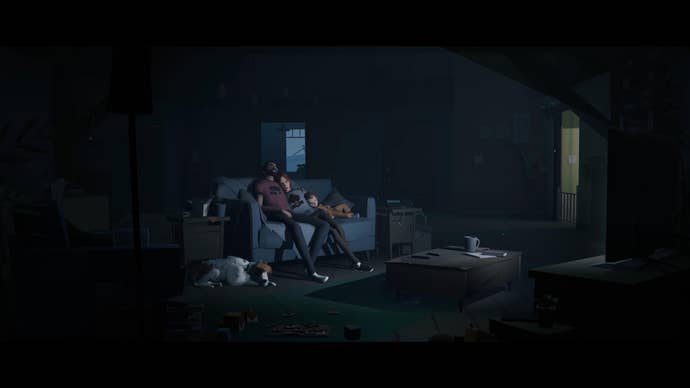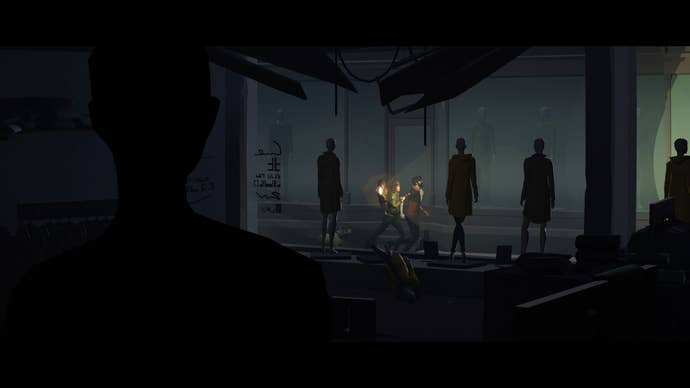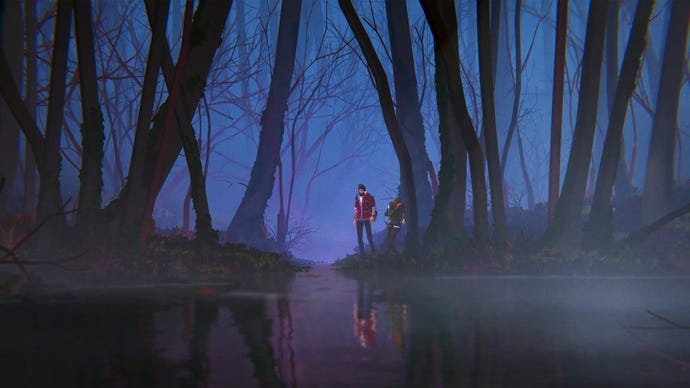Somerville review: the most beautiful game I’ve ever played
Jumpship has created a gorgeous work of art that just achieves greatness in Somerville, in spite of some control quirks.
I was enraptured from the start. A toddler ambles around a room, filled only by the light of a TV’s static, as the parents sleep on the sofa. It’s the most unlikely opening to a story about an invasion, but one that gives you all the info you need to be invested. A low-key, personal disaster movie begins in the moments that follow, and I was hooked throughout the hours that proceeded.
Jumpship has created a game that is hard to define. While it loosely feels similar to studio co-founder Dino Patti’s Inside (which he produced at Playdead), Somerville is on an entirely grander, more beautiful scale. It is, despite some fiddly moments, a quite magnificent sci-fi adventure, and an astonishing achievement for writer/director Chris Olsen and the team.

This article is going to be brief, only in part due to the fact that I’m pushed for time. I simply don’t want to say too much about what happens in Somerville – itself a game that packs a lot into a fairly brief runtime. On a purely functional level, this is a kind of evolution of Inside, in so much as a lot of the game is spent walking around with your character, more or less seeing the sights. There’s more exploration here than in Inside, though, and the environment is more interactive, but this isn’t a platformer of any description.
Somerville is still very much what I guess you’d describe as an “interactive experience” rather than a “gamey game video game for gamers,” but you can wander about with a bit more freedom than I expected. This has thrown in a few unfortunate control oddities, such as the character occasionally being unwilling to do the thing you clearly know you need to do (turning a crank, for example). At worst this is mildly irritating, though – not game breaking – but unfortunately can be a slight yank out of the immersion.
A shame, as that immersion is quite something. There are puzzles – most of which aren’t overly obtuse, relying on common sense on the whole – but the star here is the world itself. The subtle details that imply events that have transpired. You’ve arrived after the story has been told, only able to piece together what’s gone on as you venture forward in an attempt to put your own life back together following a calamitous world-shattering event.

There is doubtless going to be reams and reams of critical thought about what Somerville says, but for me it ended up being quite simple, despite not yet fully understanding the game’s climactic moments. I’m keen to delve deeper with additional playthroughs and listen to what others make of certain scenes, but I was left with a deep sense of loss and regret. At one point, my face staring back at me as I played into the night on my Steam Deck, my eyes welled up – a moment so perfect, so emotive, I’m still thinking about it. Days later.
In truth, I’m not the biggest thinker when it comes to media. I watch a film, read a book, play a game, and take what’s happened at face value. If meaning is hidden behind a 10k-post Reddit thread, then, well, maybe it wasn’t conveyed well enough. Somerville doesn’t have this problem. It’s affecting in all the right ways, and a game I really can’t recommend strongly enough.

